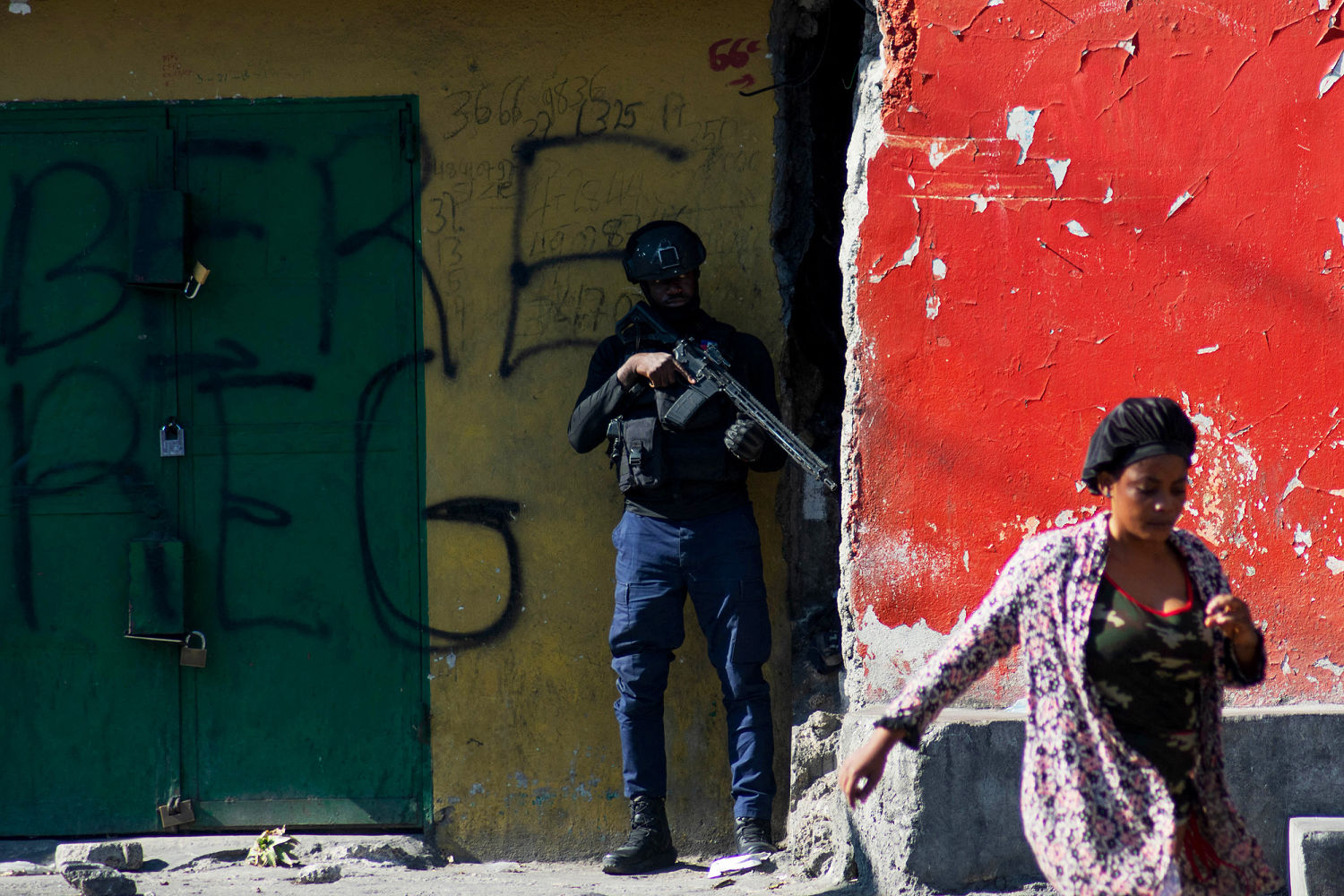Why some Haitians don’t want foreign nations intervening in their crises — and

Johnny Celestin generally believes that Haiti, which continues to be under heightened violence from armed groups and gangs, must re-establish order on its own.
“My heart is against foreign intervention,” said Celestin, chair of the nonprofit organization Konbit for Haiti. “I firmly believe in Haiti’s agency.”
But now, with armed militias creating an unprecedented level of instability amid a weekslong leadership void, Celestin and others say foreign intervention may be necessary.
“I guarantee you,” Celestin said, “that people who are losing their homes, losing their lives, are not in a space where they’re saying, ‘Let us die because we’re so proud. We don’t want any foreign help to help us.”
Now living in New York City, Celestin is a native of Haiti and has lived there on and off for most of his life. He returned to Port-au-Prince in 2010 and traveled extensively throughout the country for 10 years.
For generations, his beleaguered Caribbean nation has sought to achieve home-grown stability but, following the assassination of its democratically elected President Jovenel Moïse in 2021, armed groups took increasing control of the country’s capital. The violence that immediately ensued put its citizens at yet another crossroads. Some Haitians say their country will only suffer further if foreign intervention is allowed, while others say international support is necessary for Haiti to overcome its political and humanitarian crises.
Attempts have been made in the past to foster solutions at home. For example, the year Moïse was killed, a group of Haitian and non-Haitian religious leaders, women’s rights groups, lawyers, humanitarian workers and more formed the Commission to Search for a Haitian Solution to the Crisis. The commission proposed a two-year interim government with oversight committees tasked with restoring order, eradicating corruption and establishing fair elections. The group is still working to make its plan a reality.
But as violence has ratcheted up in the last several months, the United Nations’ latest plan — drafted by the United States and Ecuador — is to send Kenyan troops in to police Haiti. The plan has drawn criticism from those who say Kenyans don’t speak Kreyòl or French and there is evidence of human rights abuses in the Kenyan army. The plan is currently on hold, but it falls in line with Haiti’s history, which is riddled with intervention from other nations, especially the U.S., with little evidence that these efforts have contributed to long lasting peace and stability in the country.
Celestin, like other Haitians, said he is inherently against foreign intervention as it has existed, but understands that it may be necessary to stem the tide of violence and poverty in Haiti. However, he said, any foreign intervention should support Haitians and their efforts rather than holding complete control over the country with no input from its citizens.
“The fight that needs to take place to save Port-au-Prince and to save Haiti, has to be a fight that is led by Haitians. I believe we have that capacity, if those folks feel they have backup … Once they clear an area, there’s got to be another force that can come in and ensure that they control it. And this is what I believe the international force can do.”
Monique Clesca of Port-au-Prince agrees that it is important for Haitians to work with foreign actors, but it must be on their own terms.
“There is an aspect of sovereignty that’s extremely important,” said Clesca, a member of the Commission to Search for a Haitian Solution to the Crisis. “Yes, we need to work with different partners; yes, we will need help; but it is not them who will dictate what kind of help we should get and when we should get it.”
However, Haitian scholars like Jemima Pierre have condemned the foreign intervention throughout Haiti’s history. Pierre, a professor at the University of British Columbia, Vancouver, said foreign intervention, including from the U.S., is partially to blame for Haiti’s turmoil.
“What intervention means for Haiti, what it has always meant, is death and destruction,” Pierre said. “What’s the definition of insanity? Doing the same thing over and over again, and expecting a different result.”
Destructive foreign intervention colors Haiti’s history as an independent nation
Haitians’ skepticism about outside interference dates back to the birth of the country.
In 1791, Haitians began a revolt against slavery. They ousted their French masters and Haiti obtained its independence in 1804. The story was one of heroism and triumph, until France issued the newly freed Black country an ultimatum: pay 131 million francs in reparations to its former masters or face consequences. The…
Read More: Why some Haitians don’t want foreign nations intervening in their crises — and

